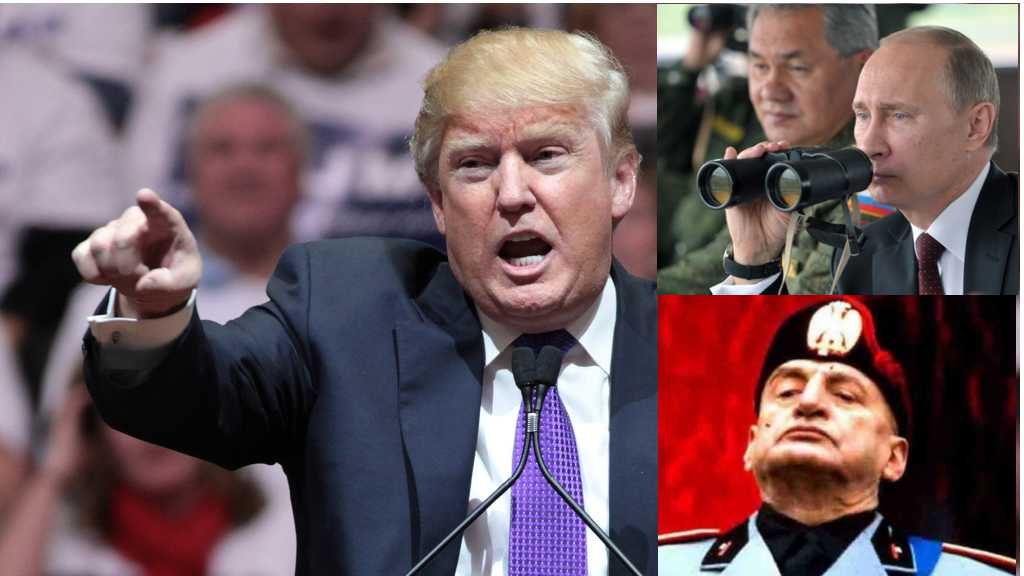Since Donald Trump’s popular vote defeat and an electoral college win my unease continued to grow. Why? American Democracy is in trouble. Paul Krugman gave a short historical perspective with today’s similarities worth reading.
American Democracy is not some static form of government. It is a system of government whose stability depends on constant monitoring and action. And that is the reason why everyone needs to engage before anti-democrats like Trump and his ilk make irreversible changes. To be clear, we are one terrorist attack from a Trump administration taking away our civil liberties and with that our ability to fight an oncoming fascist regime.
Paul Krugman wrote the piece titled “How Republics End” worth reading in its entirety. Krugman opening paragraph expresses the reality we find ourselves in now. “It takes willful blindness not to see the parallels between the rise of fascism and our current political nightmare,” Krugman writes.
But he goes further. The parallels are not just the recent 30’s, but the Roman empire. You see, it is the repetitive nature of evil history.
Roman politics involved fierce competition among ambitious men. But for centuries that competition was constrained by some seemingly unbreakable rules. Here’s what Adrian Goldsworthy’s “In the Name of Rome” says: “However important it was for an individual to win fame and add to his and his family’s reputation, this should always be subordinated to the good of the Republic … no disappointed Roman politician sought the aid of a foreign power.”
America used to be like that, with prominent senators declaring that we must stop “partisan politics at the water’s edge.” But now we have a president-elect who openly asked Russia to help smear his opponent, and all indications are that the bulk of his party was and is just fine with that. (A new poll shows that Republican approval of Vladimir Putin has surged even though — or, more likely, precisely because — it has become clear that Russian intervention played an important role in the U.S. election.) Winning domestic political struggles is all that matters, the good of the republic be damned.
Krugman points out that even though on paper Rome remained a republic, an empire was its reality.
And what happens to the republic as a result? Famously, on paper the transformation of Rome from republic to empire never happened. Officially, imperial Rome was still ruled by a Senate that just happened to defer to the emperor, whose title originally just meant “commander,” on everything that mattered. We may not go down exactly the same route — although are we even sure of that? — but the process of destroying democratic substance while preserving forms is already underway.
We see that transformation in the U.S.; win at all cost. The aberration in our constitution that allows the election of a president in an undemocratic fashion is probative. That small states get the same representation in the Senate as large states is another aberration that distorts our democracy.
Recently in North Carolina, a gerrymandered orchestrated Republican supermajority in their Congress made the democratically elected governor virtually powerless. Krugman writes about the danger of this type of act.
Combine this sort of thing with continuing efforts to disenfranchise or at least discourage voting by minority groups, and you have the potential making of a de facto one-party state: one that maintains the fiction of democracy, but has rigged the game so that the other side can never win.
Krugman concludes the following.
But what directly drives the attack on democracy, I’d argue, is simple careerism on the part of people who are apparatchiks within a system insulated from outside pressures by gerrymandered districts, unshakable partisan loyalty, and lots and lots of plutocratic financial support. For such people, toeing the party line and defending the party’s rule are all that matters. And if they sometimes seem consumed with rage at anyone who challenges their actions, well, that’s how hacks always respond when called on their hackery.
Krugman is pessimistic about this American sickness.
One thing all of this makes clear is that the sickness of American politics didn’t begin with Donald Trump, any more than the sickness of the Roman Republic began with Caesar. The erosion of democratic foundations has been underway for decades, and there’s no guarantee that we will ever be able to recover.
I am not pessimistic at all. America’s descent into anti-democracy and fascism began again in my opinion with the Powell Manifesto. Its trajectory was taken a bit off course with the election of President Obama. The fear many in the plutocracy had for Obama was not warranted as Obama believed in turning the juggernaut slowly. They knew a four or eight-year pause would not derail them, especially with an intransigent Republican Congress. They also knew Hillary Clinton would not be very disruptive. But Donald Trump is an injection of speed in their bloodstream that they will use. His cabinet reflects the resolve and speed with which they intend to act. It is for this reason that much more than vigilance is required. A peaceful opposition is a must.

